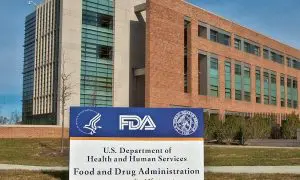 Click here for our latest information on the FDA’s premarket tobacco applications.
Click here for our latest information on the FDA’s premarket tobacco applications.
11th May 2020 is the new deadline for US e-cigarette makers to submit their products to the Food and Drug Administration (FDA), following a ruling this week by a federal district court.
The court in Maryland was deciding how to resolve a case in which it had already held, in May, that the FDA’s postponement of deadlines violated the Administrative Procedure Act (APA) by not following its requirements for comments and notice.
In its postponement announcement in 2017, the FDA had set a series of extended deadlines for different aspects of compliance with the deeming regulations, culminating in 2021 and 2022 dates for submission of premarket tobacco applications (PMTAs) for e-cigarettes.
But earlier this year, a variety of public health groups including the American Academy of Pediatrics, American Heart Association, American Lung Association, Campaign for Tobacco-Free Kids, and Truth Initiative filed a lawsuit in Maryland against the FDA, seeking to force it to bring those deadlines forward.
Judge Paul Grimm agreed with them that the FDA should not have granted the extensions without following the Administrative Procedure Act. However, he did not until this week decide what schedule should be applied instead.
The plaintiffs had asked for four months, but in a judgement that was largely critical of the industry and praised the FDA, the judge sided with the agency’s request for ten months.
Under the revised regime, then, PMTA submissions must be made by 11th May 2020 and products can remain on the market for one year after that date while submissions are processed. The FDA will also have “the ability to exempt New Products from filing requirements for good cause on a case-by-case basis”.
Industry objections dismissed
Technically, the ruling applies only to products that were already on the market on 8th August 2016, when the deeming rule came into effect, as none should have been introduced since then without PMTAs.
The judge appeared impressed by the FDA’s argument for ten more months.
The agency had “made a commendable record detailing their own resources and ability, as well as the negative impact of rushed, unguided applications that would exacerbate their difficulties in timely approving – or denying – applications”, he said, noting the agency’s contention that an earlier deadline “would threaten to abruptly clear the market of e-cigarette products” and create a “genuine risk” that vapers would return to smoking.
But he dismissed the industry’s objections.
“The Industry contends disingenuously that it cannot complete its applications without further formal guidance,” he said. “Yet, according to [the FDA], it is commonplace for companies and individuals to call the FDA for guidance, and the FDA has made clear that it is willing to work with manufacturers in the interim to provide informal guidance.“
Moreover, he added, “the record before me shows a purposeful avoidance by the industry of complying with the premarket requirements despite entreaties from the FDA that it can do so, and it establishes a shockingly low rate of filings. And, it is far from clear how an impending deadline would force some of the more successful companies to withdraw from the market entirely, when they have large purses and the resources to complete promptly the applications that they have had before them for years.”
Grimm also said: “It appears that, in the new guidance that the FDA expects to approve within 120 days, the FDA plans to accelerate the premarket review requirements for the products that are most attractive to youth, such as flavored products.”
What This Means: Either party could appeal, though we think this is unlikely – the public-health groups have won on principle, and the FDA has got exactly the revised deadline it asked for.
For the industry, of course, the implications of this judgement are obvious: PMTAs are no longer a hypothetical problem for some comfortably distant future, but a challenge that needs to be met immediately. The FDA is likely to issue new guidelines on PMTAs within a few months and they will have to be followed quickly.
How the decision will be treated in the media and in public debate is another question. It is quite likely that it will be presented as a victory for anti-vaping activists, but in reality the public-health merits of e-cigarettes were not the issue at hand. The judge’s criticisms of the industry related to its tardiness in preparing PMTA applications, not to its products.
It is noteworthy, too, that the FDA in its case argued against the shorter deadline precisely because it did not want to wipe e-cigarettes off the market entirely. This suggests that under new acting commissioner Ned Sharpless there is some recognition of vaping’s benefits for public health, and perhaps somewhat less anti-vaping zeal than under his predecessor Scott Gottlieb – even if Sharpless’s open letter this week did imply he was also anxious not to be seen as weak on the matter.
– Barnaby Page ECigIntelligence staff







